It’s about time we covered a minority language here on LangBios, and as my name is Welsh, I think the language is a good fit!
Chapter 1: Birth
Welsh is the language of the nation of Wales. Though a part of the broader Celtic identity, the Welsh people and language are often forgotten or subsumed under the broader English and language and culture of the United Kingdom. However, different Celtic nations have been around for much longer.
Back before the birth of Welsh, or Cymraeg, and the migration of Angles and Saxons to the British Isles, where they would eventually establish England and, later, the U.K. (we’ll cover this later), there were many Celtic nations that ranged across Western Europe. Thought to have migrated from the east long ago, these established groups are theorized to have greatly influenced modern Romance languages.
British, a Celtic language that had evolved from Celts who had crossed the channel into what we now call the British Isles, provides the ancestor for modern Welsh, which is thought to have emerged as a distinct language around the 9th century as migration from Germanic and other Celtic groups began to split British land and communication.
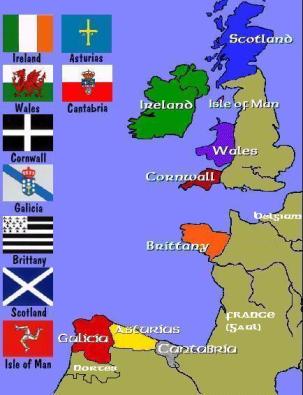
Wales was delineated around this time by very similar borders as the ones it currently proclaims, though during these Medieval times the nation was made up of various kingdoms. The largest of these kingdoms were Gwynedd, Deheubarth, and Powys, though there were smaller ones to the southeast and borders between kingdoms were not well defined.
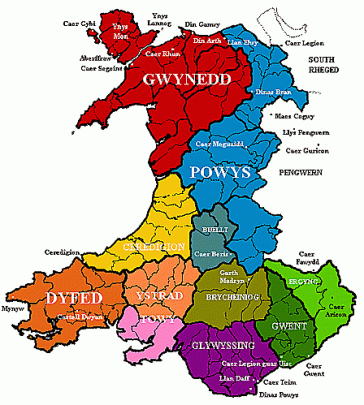
The first to rule a considerable part of Wales and thus begin the process of unification was Rhodri Mawr or Rhodri the Great. Originally the king of Gwynedd, he extended his rule to Ceredigion and Powys in the 10th century, effectively bringing together the north and west of Wales. Rhouri’s son, Hywel Dda, would go on to incorporate Deheubarth in the southwest, though he lost Gwynedd in doing so. Wales would not become a unified political entity until Llywelyn Fawr was able to obtain control of the majority of Wales before his death in 1240.
Chapter 2: Here Comes England
Llywelyn’s son, Dafydd ap Llywelyn struggled with the newly formed Kingdom of England during his rule. As a political strategy, King Henry III would not allow him to inherit his father’s throne, and as a result the two kingdoms went to war. Twice. Dafydd died in his capital of Abergwyngregyn without leaving an heir, and because his brother had also died, it was up to Dafydd’s brother’s children to figure out who would have power therein. This lead to the eventual rise of Llywelyn ap Gruffudd to power.
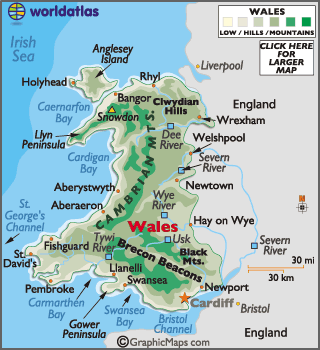
After regaining control of most of Wales, attention again turned to England as border disputes between the two in the south lead to another conflict. King Edward I of England then engaged in war with Wales and defeated them by luring Llywelyn into a meeting where he was killed and his army destroyed. Though Llywelyn’s brother took over and maintained the Welsh side of the conflict, he was defeated and hanged in 1283. As a result of this end to the war, Wales became administered by England, effectively becoming its first colony, of many to come.
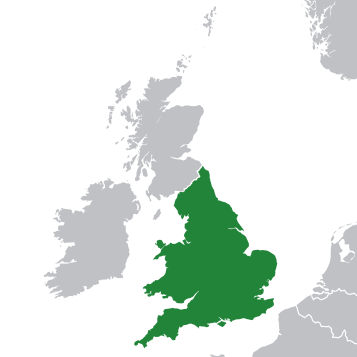
During the next few hundred years, Wales was controlled by England, restricted in law by the Statute of Rhuddlan and only allowed self-governance in the form of the Council of Wales, which was appointed by English Kings. A Prince of Wales was appointed to continue the monarchy, but this person ended up being King Edward I’s son and heir. English politics had effectively ingrained themselves in the higher reaches of Welsh government.
This means that the language of broader communication and social mobility in the Kingdom would become English, beginning a long strain on the survival of Welsh. The Welsh people could not do much to combat the English at this point, as they were unable to hold higher office, carry arms, or even marry English people.
Dissatisfaction grew in Wales until the Laws in Wales Acts of 1535-1542 were passed. These laws officially integrated Wales into the English Kingdom. No longer was it simply a colony, and the benefits of this provided Welshmen more of a participation in broader English society. The coast of this, however, was that the Welsh legal system, culture, and language, were all banned from any official status. With no formal legal distinction now between Welshmen and Englishmen, the Welsh had more potential to integrate, but this came at the price of their heritage.
Chapter 3: Argentina??
After a few centuries of Welsh language decline under the influence of English control, integration into English society began to become a contested topic, with issues of Welsh nationality arising within the community of Welsh speakers. Many wanted to preserve the language and escape those who had oppressed them for so long, and this kind of discourse is what led of the Welsh language to Argentina.
Sounds weird, right? Welsh in Argentina definitely comes unexpectedly, but I think that’s what the intention was. You see, in the late 1800s, when many overseas colonies of vast empires such as England, Spain, France, and Portugal had been freed or were fighting for their freedom around the world, the fact that England still maintained control of Wales seemed unfair to many. Or at least, it provided the perfect opportunity to begin anew the discussion of Welsh nationhood.
This began a period of gradual nationalism in the Welsh community, beginning with the search for a Welsh colony abroad. Argentina was chosen for its remoteness and its history with an empire that wasn’t Britain. Thus, as many Europeans immigrated to various places in the New World and set up ethnic enclaves, the Welsh claimed part of Patagonia and set up a “little Wales” there.
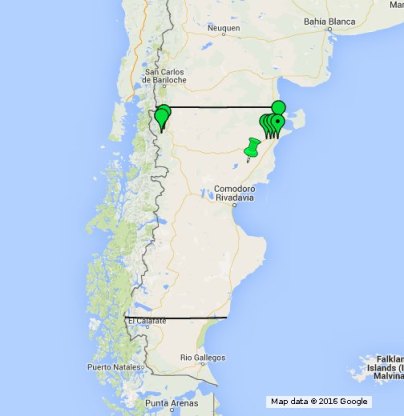
Though Welsh in Argentina succumbed to a decline similarly experienced by many immigrant language groups in the Americas, and also similarly experienced to its own model nation in Britain, relations between the Y Wladfa in Argentina and Wales in Britain have strengthened in the 20th century, encouraging the persistence of the language through cultural exchanges and indeed providing international status to the language which now bridges bilingual English-Welsh in Britain and Spanish-Welsh in Argentina.
Chapter 4: The Party of Wales
Returning to the story of Wales, the nation began industrializing in the early 20th century on order from the central British government. Thus, the south undertook coal and ironworks industries while the north remained primarily agricultural. The result of this was increasing migration of English speakers to the south, thus incentivizing their language further. When the Great Depression hit, Wales was struck hard, and many people turned to the English language and migration out of Wales as a way to increase their chances and keep poverty at bay. The disparity of English to Welsh speakers during this period became immense.

To combat such things as the decline of the language by promoting Welsh culture and autonomy through government, the Plaid Cymru or Party of Wales was created in 1925. This party sought political changes that would increase the usage of the language, finally obtaining radio broadcasts in Welsh and the ability to have court pleas in Welsh. Additionally, two Welsh Language Acts, of 1967 and 1993, first established legal protection for the use of Welsh in official government business, and then equalized the status of Welsh with English in Wales regarding all services in the public sector. Another aspect of the second Act is the establishment of the Welsh Language Board, which services directly under the Secretary of State for Wales and whose goal is the governmental protection of Welsh, receiving an annual £13m to do so. The Acts do not invoke private businesses to provide services in Welsh, however, and so now there is talk of a third Act to increase usage in this regard.
Epilogue: Welsh Today
Like many minority languages, Welsh has had a long history of struggle in opposition to trends of majority influence. It’s difficult to fight against the encroachment of the broader language of state in any case, but when that language also happens to be our current global lingua franca it becomes a difficult task. Nevertheless, the Welsh Nation has made strides in promoting its language and fighting for the autonomy to do so over its long history, even going so far as to establish a colony elsewhere in the attempt to start anew and prosper in different conditions.
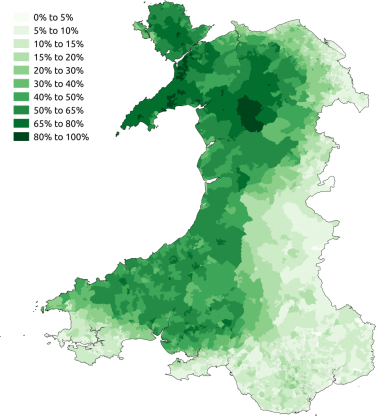
There are an estimated 700,000 native Welsh speakers remaining in the U.K., mostly concentrated in Wales, and consolidated in Wales to the northwest. Additionally, there are about 5,000 speakers in Argentina. Welsh remains isolated but is increasingly being used in technology and spreading throughout the community.
